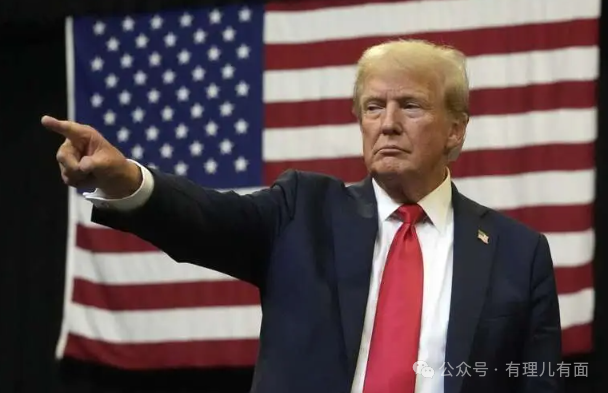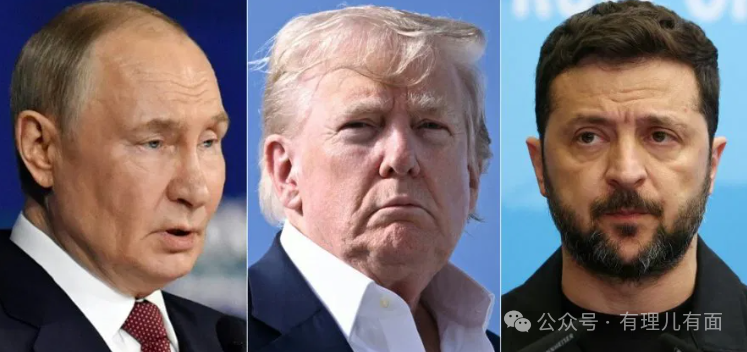On August 6, local time, American Special Envoy Vítkov met with Russian President Putin. Later, American President Donald Trump said he would soon meet with Putin.

When Vítkov, the US envoy, shook hands with Putin at the Moscow Airport, the long-lost direct communication between Washington and Moscow resumed. The three-hour closed-door talks, described by the Russians as”Productive and constructive”, were anything but diplomatic in the current climate.
For the first time since 2021, direct talks have replaced air-to-air talks at the highest levels. On social media, Donald Trump acknowledged “Tremendous progress”, although he later said the negotiations were “Complicated”. But this”Swing” speaks volumes about his eagerness to move the meeting forward.
The White House said the venue was being finalised and could be launched as soon as next week, with Donald Trump set to meet Putin face-to-face and reactivate the trilateral mechanism with Ukrainian President Zelenskiy. That means he is trying to take an unprecedented diplomatic gamble across logistical, security and public opinion barriers.
Russia has been clocking in precisely: it has shown that it is”Negotiable”, also set”Cards”. Ushatkov, an aide to Putin, stressed that “As long as the Americans are sending the right signals, the Russians can continue to communicate deeply”. It was a rare expression of the Kremlin’s”Willingness to negotiate”, especially after a series of drone strikes on the Ukrainian army.
If dialogue is an olive branch, then sanction is a knife tied to the branch. On the same day Vítkov stepped out of Russian airspace, the US imposed new tariffs of 25 per cent on the country, citing “Continued purchases of Russian oil”.

“The Indians not only import Russian oil but resell it at a high price for profit,” Donald Trump said, referring directly to the “Dead Ukrainians.”
The sanctions are not an accident, but a signal of the start of what the US calls a“Sub-sanctions” regime. According to an internal White House memo, the mechanism will be in place by August 8, involving more than 40 national energy import channels.
Behind this strategy is a sophisticated”Talk and talk” logic: not to really cut off oil, but to talk about”Global oil”. Donald Trump needs a way to force the parties to take the talks seriously.
Whether the sanctions will be enforced is not something that even the White House intends to make clear. “The final decision will be made in the next 24 to 36 hours,” Rubio, US Secretary of State, said in a Fox News Channel. This fuzzy setting is itself a kind of leverage operation.
Why would Putin choose this moment to talk?
Not because Russia’s strategic initiative has run out, but because he has pinpointed the cracks in the Western alliance.
The first is Ukraine. While welcoming the trilateral summit, Zelenskiy insisted on “Regime change” as a core issue. This is a clear departure from the ceasefire priorities of the Donald Trump administration.
Europe is even more hesitant. Germany expressed”Sanctions concerns” at the G7 meeting of foreign ministers, France refused to participate in”Sub-sanctions”, Poland asked Ukraine to”More co-operation.
Putin is clearly engaged in a “War of disassembly”, not a “Truce of defeat” but a financial transaction of “Retreat if you retreat”. “Russia is willing to consider a partial withdrawal in exchange for reciprocal security guarantees,” the Kremlin spokesman made clear, which is tantamount to changing the subject of negotiations from”Who loses” to”Who changes”.
This is Russia’s diplomatic plan: not to make peace, but to”Stop the war through injury”. Putin has marginalised the country and torn apart the EU’s moral standing by offering to relent, creating an atmosphere of “Us-russian dominance”.
Behind Zelenskiy’s fear of “Being lied to in detail” is a growing sense of unease on the Ukrainian side.
As well as diplomacy, Donald Trump has played a more dangerous card: the nuclear submarine.
This week, the U. S. military two nuclear submarines secretly deployed to”Sensitive waters.”. Although the location was not disclosed, Russian media quickly reported that the U. S. submarine has approached the Black Sea Waterway. Donald Trump neither admitted nor denied this, saying only, “We want everyone to know we’re not kidding.”
Russia immediately announced the lifting of its own ban on the deployment of medium-range missiles and said it would consider an“Asymmetric response”.
A nuclear escalation is psychological warfare. What Donald Trump needs is a “Sense of deterrence on the table”, a strong image of a “Mediator” rather than a “Creeper” through strategic deployment.
White House officials acknowledged that the move was closely related to Donald Trump’s recent war of words with Dmitry Medvedev on social media platforms, where “The president asked for a show of strength, but not too much” was the real intent of the deployment.
Nuclear weapons are useless, but they work. Just make Putin think there will be a price for disobedience and Donald Trump wins the opening.
Ukraine’s role at the moment is more nuanced. On the one hand, Zelenskiy has received a phone call from Donald Trump, clearly expressed “Support for the direction of the ceasefire”, while on the other hand, the Ukrainian side still insisted that “Peace can not be exchanged for territory”.
But the US move is marginalising Kiev:
– Vítkov and Putin met alone, without prior knowledge on the Ukrainian side;
– after the talks, the White House immediately communicated with Germany and France, and Ukraine was not included in the list of simultaneous calls;
– the purchase agreement for US $20 billion in aid was signed by the four countries and Ukraine lost its direct bargaining power.
More realistic pressure comes from the energy battlefields.
According to Ukraine’s Ministry of Energy reported that the Russian drone blew up 4 natural gas stations within 24 hours, nearly 120,000 households out of gas. Southern Odessa residents began to”Store firewood for the winter.”.
It’s putting a lot of pressure on Zelenskiy. America has pledged military aid and Europe has pledged loans, but energy fragility means the costs of war are rapidly being passed on to ordinary people.
If the US and Russia reach a”Framework agreement” and bind Ukraine to a”Must-accept” outcome, what will Kiev Do? Cooperation will damage the reputation, refuse to help no insurance.
This is a typical”Geo-kidnapping”, Ukraine once aphasia, only to obey.
For Donald Trump, the summit is not just a truce, but a lifeline to “Save the 2025 election”.

His”End the war” persona is the biggest difference between him and the Democrats. If he can produce a partial cease-fire by August, he can tell voters before the September Congress that”I am the only one who can keep the world quiet”.
That is why he is eager to meet, why sanctions are being imposed at the same time, why submarines are being deployed-all bets are on results.
But the risks are also huge:
– if Putin’s quid pro quo is perceived by US public opinion as “Appeasement”, it will spark a Republican backlash;
– if Zelenskiy refuses to sign the deal, us-ukrainian relations will plunge;
– Donald Trump’s “Cease-fire dividend” would be diluted if EU member states went out of their way to reach a supplementary agreement with the Ukrainians in private.
Donald Trump is running at high speed, but there are more and more variables on the track. The trilateral us-russian-ukrainian summit is not the answer, but the fuse. Handled properly, it is a sign of peace; handled out of control, it is the starting point for a diplomatic meltdown.
Putin knew this, and Zelenskiy knew it better — that the real test is not on the table, but outside.
No one can be sure that next week’s negotiations will go ahead. But to be sure, the game has entered a stopwatch stage, every gesture hidden chips, every statement is a bet on fate. Who’s gonna walk away from this game of political poker?
Perhaps, as Donald Trump himself said, “This is the War I want to win most because it is not my war — but I will end it.”
The question is, this time, will the war be dictated by his playbook?
Images from the network